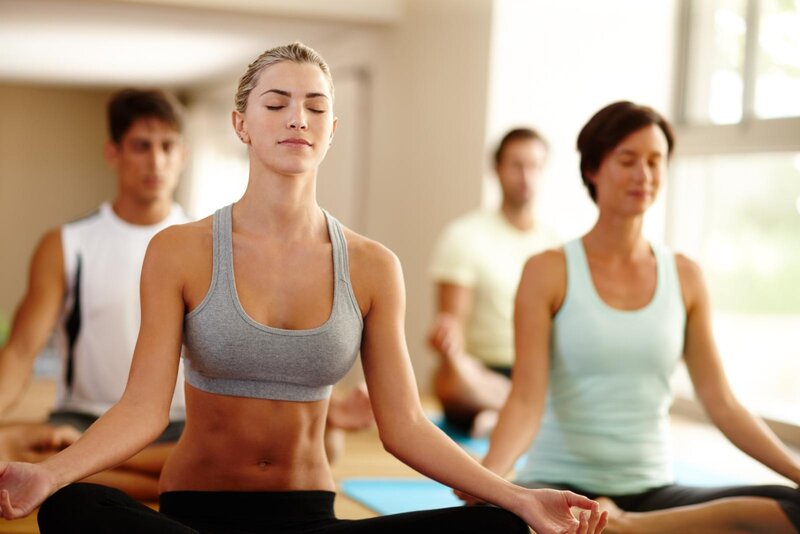
The Benefits of Yoga for Stress Management and Relaxation
Posted by Rebecca Potter on 2023-02-08
Yoga offers the benefits of stress management and relaxation in a healthy way. It has helped people from all walks of life to relax. Yoga is a natural practice, and there are many types to choose from. Whether you opt for Hatha, Yin, or Restorative, you will surely enjoy the many physical and therapeutic benefits of yoga.
Restorative yoga
Restorative yoga is a type of yoga that helps the body relax. It uses props, such as pillows and blankets, to support the body. These are generally placed in a variety of positions.
The main purpose of restorative yoga is to relax the nervous system. It's a great way to prepare the body for sleep and improve overall health. If you're new to this practice, starting with a few lessons with an experienced teacher is a good idea.
You'll also want to have a mat. There are also many options for props. They can include towels, blankets, and blocks.
Some of the most common restorative yoga poses include chest openers and seated forward folds. To perform these, place a bolster behind the backs of your knees. Also, use a rolled-up blanket or an eye pillow to support your eyes.
Yin yoga
Yin yoga is a form of yoga that aims to access the body's deep tissues. The practice is slow, gentle, and meditative, allowing the body to relax and restore energy levels. It is recommended for all fitness levels.
A study has shown that Yin yoga positively impacts stress and anxiety. Participants reported lower stress levels and a decreased risk of anxiety and depression. In addition, Yin yoga can improve a person's mood and reduce vascular and cardiac stress.
This is important because increased stress can lead to various health complications. It is also associated with premature mortality. Stress-related illness is best combated through societal change.
A study has shown that a five-week Yin yoga-based intervention has a positive effect on physiological risk factors for NCDs. It also reduces subjective stress, depression, and insomnia.
Hatha yoga
Practicing Hatha yoga is a great way to reduce stress and anxiety. It can also help increase flexibility and strength.
A 2018 survey of over 1,800 young adults found that yoga helped improve mindfulness and motivation to participate in physical activity. In addition, yoga was found to be particularly helpful for people with high anxiety levels.
Research has shown that people who regularly practice yoga have lower cortisol (a stress hormone) levels than those who do not. This may help decrease the need for prescription drugs.
The study found that participants who practiced hatha yoga experienced significant reductions in both anxiety and depression. They also reported feeling more confident when working on a stressful task.
Another study found that hatha yoga could benefit women suffering from hot flashes during menopause. These studies also suggest that yoga can help relieve back pain.
Therapeutic effects
Yoga has been proven to be a very effective stress management and relaxation therapy. Yoga helps to reduce anxiety and increase strength and flexibility. It also has positive effects on heart health. A 2010 study showed that yoga was more beneficial than walking for improving anxiety and mood.
Asthma is a common condition, and yoga is helpful for controlling breathing patterns. In addition, it can be a useful tool for asthmatic patients to recognize triggers.
One of the most common forms of anxiety is generalized anxiety disorder. These patients often seek complementary therapies. There is growing interest in the use of yoga for depression and anxiety.
In fact, the calming response of the parasympathetic nervous system (the relaxation response) is a very important element of yoga practice. This system is responsible for lowering blood pressure and cortisol levels while increasing blood flow to vital organs.
Online classes
Online yoga classes can be a great way to relax and relieve stress. They can also be a useful form of exercise for those who don't have time to take a class in person. However, it's important to make sure you're choosing the right classes.
Yoga is a holistic practice that can help you reduce stress, improve sleep, and build strength. It's a great tool to use in combination with other treatments to address your stress levels.
There are many different types of yoga, including hatha, ashtanga, and vinyasa. Each type offers different benefits. For example, hatha yoga is great for building strength and balance, while ashtanga is a good choice for athletic individuals.
One of the best ways to get started with yoga for anxiety and stress relief is to begin with mindful breathing. Online classes can be a fun and affordable way to get into the habit.